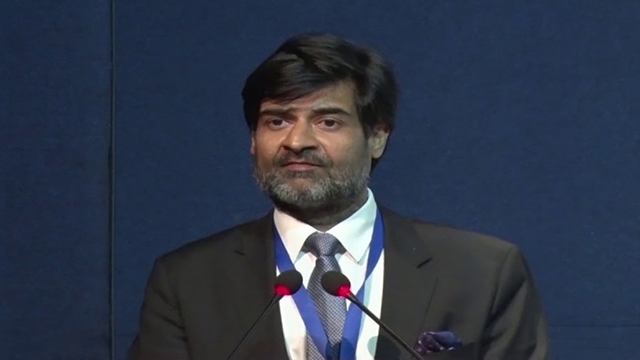FT online
Published:2019-03-14 20:58:00 BdST
BD, India to be key regional economic actors over decade
Building a pluralistic and liberal democratic society is a common challenge for both Bangladesh and India, a visiting Indian researcher said on Wednesday.
Both the countries are facing the risks of extremism and militancy, said Dr Samir Saran, president of the Delhi-based Observer Research Foundation.
He was delivering a public lecture titled "India, Bangladesh and the Indo-Pacific."
"Bangladesh and India need to move beyond the government to government (G2G) mechanism creating a stronger bonding within communities for greater good as the two countries will become important economic actors in the region in the next 10 years," he added.
The Centre for Governance Studies (CGS) organised the lecture in the auditorium of Bangladesh Institute of International and Strategic Studies (BIISS) in the city.
Both the courtiers can work together to serve common interests in the region, particularly in the areas of regional connectivity, infrastructure development, energy and technological development, he noted.
To protect the regional interest, the two countries can work together while negotiating with global powers like the USA, China and Japan.
Stressing the need for enhancing people to people contact, he said this is necessary because it would help resolve many pending disputes.
"We need far more people to people engagements, far stronger community engagements and cultural intimacy. It is disappointing that the countries did not see more people like Rabindranath Tagore who are cultural icons of both sides of the border," he said. "I do sense that we are underperformed as a region. We are underperformed as neighbours. We are the least integrated of all regions in the world."
He pointed out that academics, artists, business community and grassroots workers of the two countries need to be far more integrated than they were in the past.
India and Bangladesh must start creating a favourable international ecosystem as two countries have similar vision, Dr Saran said, highlighting the importance of building strong institutions.
Responding to a question, he said that though India did not take part in the Belt and Road Initiative of China both the countries had jointly invested in many sectors.
In this connection, he cited the example of the Asian Infrastructure Investment Bank (AIIB) where India is the second-biggest stakeholder.
CGS chairman Dr Ataur Rahman made the welcome remarks in the event, which was moderated by Zillur Rahman.
Unauthorized use or reproduction of The Finance Today content for commercial purposes is strictly prohibited.


